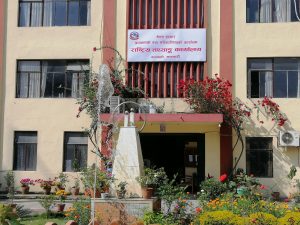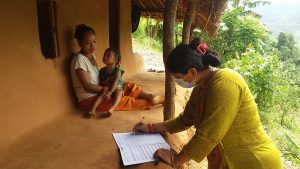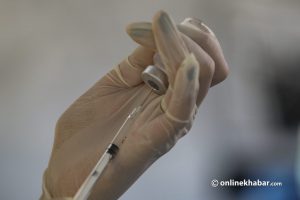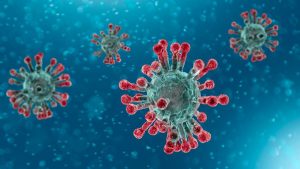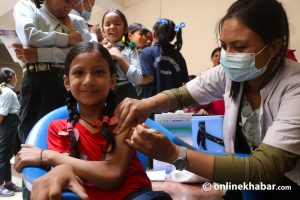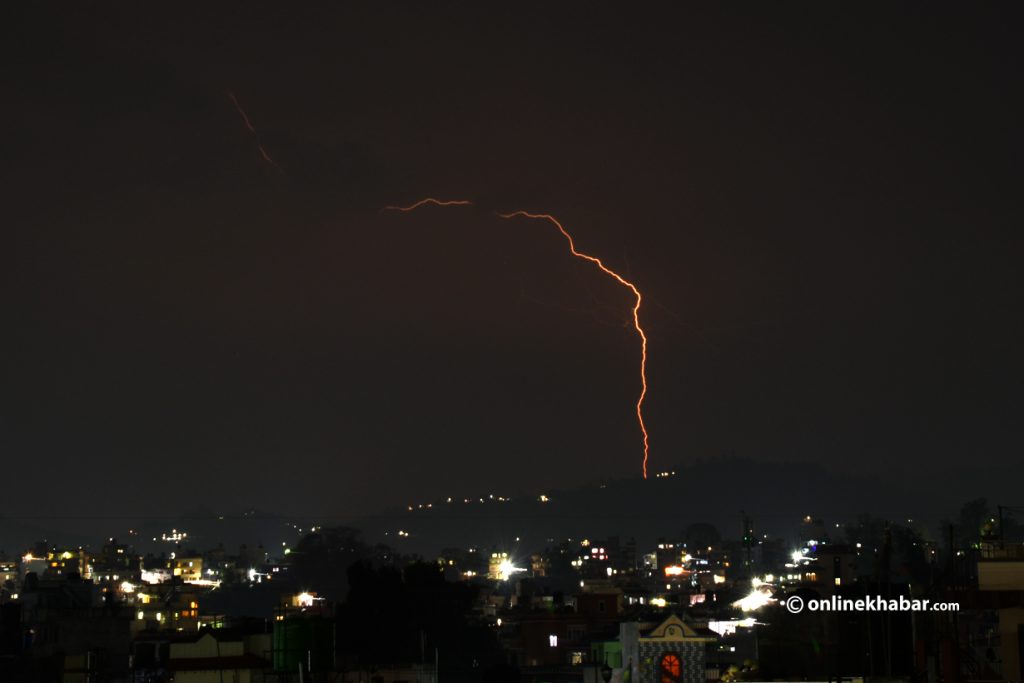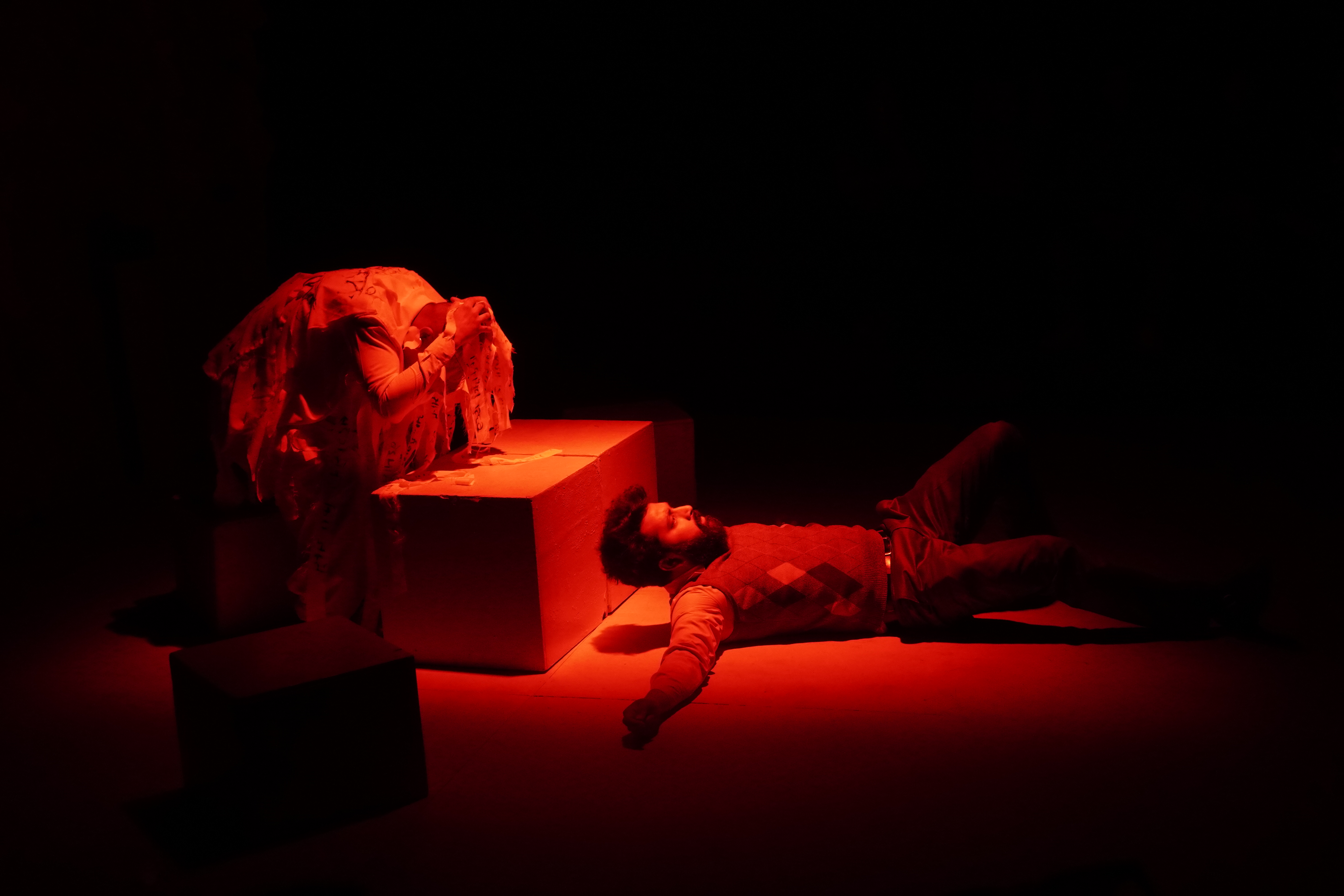Nepal, having seen a steady rise in the number of Covid-19 cases went into partial lockdown in affected districts of the country around two weeks ago. Even though the lockdown has been in place, the number of cases is increasing throughout the country.
To understand more about why there has been a recent surge in the cases due to the mutated virus, Onlinekhabar caught up with Dr Sudip Khadka, a virologist based in New York, who explains how virus change shapes, the effectiveness of the vaccine and what Nepal failed to do in its Covid-19 response.
Excerpts:
The new variant has hit Nepal quite hard in the past month. How does a virus change its shape?
A virus such as a coronavirus gradually changes with time. It’s normal for this to happen as it transfers from one body to another. In medical terms, we call it mutation. While some mutations make the virus weak, some make it strong, due to which the transmission rate increases.
The virus of Covid-19 that we are seeing now around the world isn’t like the one we first saw in China. It’s changed from one country to another and formed different variants – the most dangerous is the latest one from India.
How long can we expect this new variant to trouble us?
There is no definitive answer to this. As I said, some mutations are weak and disappear quickly while some remain for a while. If we want to know more about the virus and how it’s changing, we need to collect samples of these viruses from the community on a regular basis to study them via gene sequencing.
Prime Minister Oli, a few months ago, was boasting how Nepal had dealt with the virus in an easy manner. But, now the second wave has hit had badly. Was it naïve of Nepal to not expect a second wave? Or did it all happen too suddenly?
It was naïve as it was expected that Nepal would be hit hard. It was just a matter of when. You see pandemics don’t spread due to a sole reason. There are multiple factors governments and countries need to look at if they want to prevent it.
We’ve seen how Nepal has been careless in recent months. We’ve seen political rallies, conferences, inaugurations, weddings and festivals. All of these were done without keeping in mind that the virus was still present. These events are where a virus thrives. So, yes, we should have expected it and planned for it better than what were have been able to do.
Another reason why this has gotten out of hand is the flu season. People usually catch a cold during this time as the changing weather affects people’s immune system. As the body is weak, the chance of people getting Covid-19 is quite high.
Like everywhere, people were quite reluctant to get the vaccine in Nepal also. How effective is the vaccine against Covid-19?

We’ve seen that it is effective. These vaccines have been tested clinically and only been released. You see that people who’ve taken the jab tend to be infected less than those who have not taken the jab. As of now, the vaccine’s effectiveness is 90 per cent which is quite good as it’s been working against all mutated variants. There is a belief that it’s not as effective against the South African variant, but even against that, it’s been effective. Also, doctors and scientists have been stating that the vaccine will not prevent you from getting Covid-19. It’ll help you recover and save you from dying when you get contracted with Covid-19.
But, a lot of people who’ve taken both shots have also contracted Covid-19. Does this have anything to do with the efficiency of the virus?
There are many reasons for this. Firstly, it is the vaccinated persons themselves who have the tendency to cause the infection. I want to reiterate, this is not a medicine that cures Covid-19. What the vaccine does is forming an antibody that gives our body the best chance to deal with the virus.
But, it’s not 100 per cent sure that the body will do that as soon as you get the vaccine. It might take time to form the antibody, after which it will help the body significantly. But, the reason for most people contracting the virus even after getting vaccinated is because they are careless.
Secondly, the antibody that is already present in our respiratory system and the one which forms after we get the vaccine are different. It’s similar, but once you have the vaccine, you’ll have two antibodies in your respiratory system which will help you deal with the virus. The antibodies in our upper body (nose and mouth), however, are different. Even after getting vaccinated, the antibodies there don’t change and the virus can easily remain there. With swab being collected from the mouth and nose, with the virus there, people who have taken the vaccine will also test positive. But, if you’ve taken the vaccine, the chance of you being chronically ill is scarce. However, that person can easily transfer the virus to others.
Thirdly, vaccinated people also contract the virus when they haven’t received the vaccine in a proper manner. This happens mainly due to the poor storage of the vaccine or lack of skilled health workers giving the vaccine. We have to ensure that all procedure is duly followed when vaccinating people.
Lastly, in Nepal’s case, we’ve seen people crowd areas that were providing the vaccines. One Covid-19 patient in these areas can become a super spreader, which is why people need to be very mindful when the next stage of vaccination drive starts.
We’ve seen a lot of kids contracting the virus this time around. What might the reason be?

People in the 18-60 age group are still the most affected by the virus. This has always been the case, even during the first wave. Even though we have seen cases in children, the number is still quite low. That said, we need to be careful so that the number does not go up. If we look at the positivity rate, in some places, it’s more than two thirds, which is quite dangerous. Even the average positivity rate is around 30 per cent, which in itself is quite high. When the positivity rate is at around three to five per cent only, only then we can estimate the actual size of the pandemic.
Comparing with other countries, how has Nepal dealt with Covid-19?
I think the situations in European countries and Nepal are different. The death rate in Europe and America in the first wave was quite high. At that time, we didn’t know much about the virus. Nor did we know who were the most vulnerable and how to treat them. That is why a lot of elderly and people with chronic diseases died.
In the second wave, the death rate has gone down. The West has been able to protect the vulnerable and simultaneously developed the infrastructure and ways to treat patients with Covid-19.
In Nepal, the pandemic arrived a lot later. Initially, we saw positive cases among people coming back to Nepal from abroad. But, the death rate was significantly low. As these people started to recover from Covid-19, the virus spread in the community among people aged 18 to 40. Then, we saw people over the age of 60 contracting the virus. That resulted in more people dying which resulted in the death rate increasing.
This, I feel, is the third wave where a lot of young people are testing positive for the virus. What’s scary is more of these young people are dying than they did last year. The positivity rate is quite high too, which means that the number of deaths will continue to increase. It’s evident that Nepal, even though, had time to prepare for this, did nothing.
How long do you think it’ll take Nepal to contain this?
There is no definitive answer to this. The only way we can contain this is by maintaining social distance and not getting out of one’s house. If people abide by lockdown rules properly, it might come under control within a fortnight, but people have to show discipline.

Will vaccinating people change the rate at which the cases are going up now?
Again, vaccine alone will not end this. To restart the vaccination drive, a lot needs to be taken into consideration. Acquiring the vaccine has been an issue so has its distribution. Even if we do vaccinate people, it might take them a month to have the immunity to deal with Covid-19. I know people don’t want to hear this, but the only way we solve this is through the lockdown.
Are there any talks about vaccinating children? When will their vaccine be ready?
It is being tested and there have been positive signs. But, tests have yet to validate it. Children aren’t as affected by the virus as compared to adults as the death rate is also quite low. Even the new variants haven’t imposed a big threat. For now, until the vaccine arrives, I urge all parents to keep their children at home. Home is the safest place.







